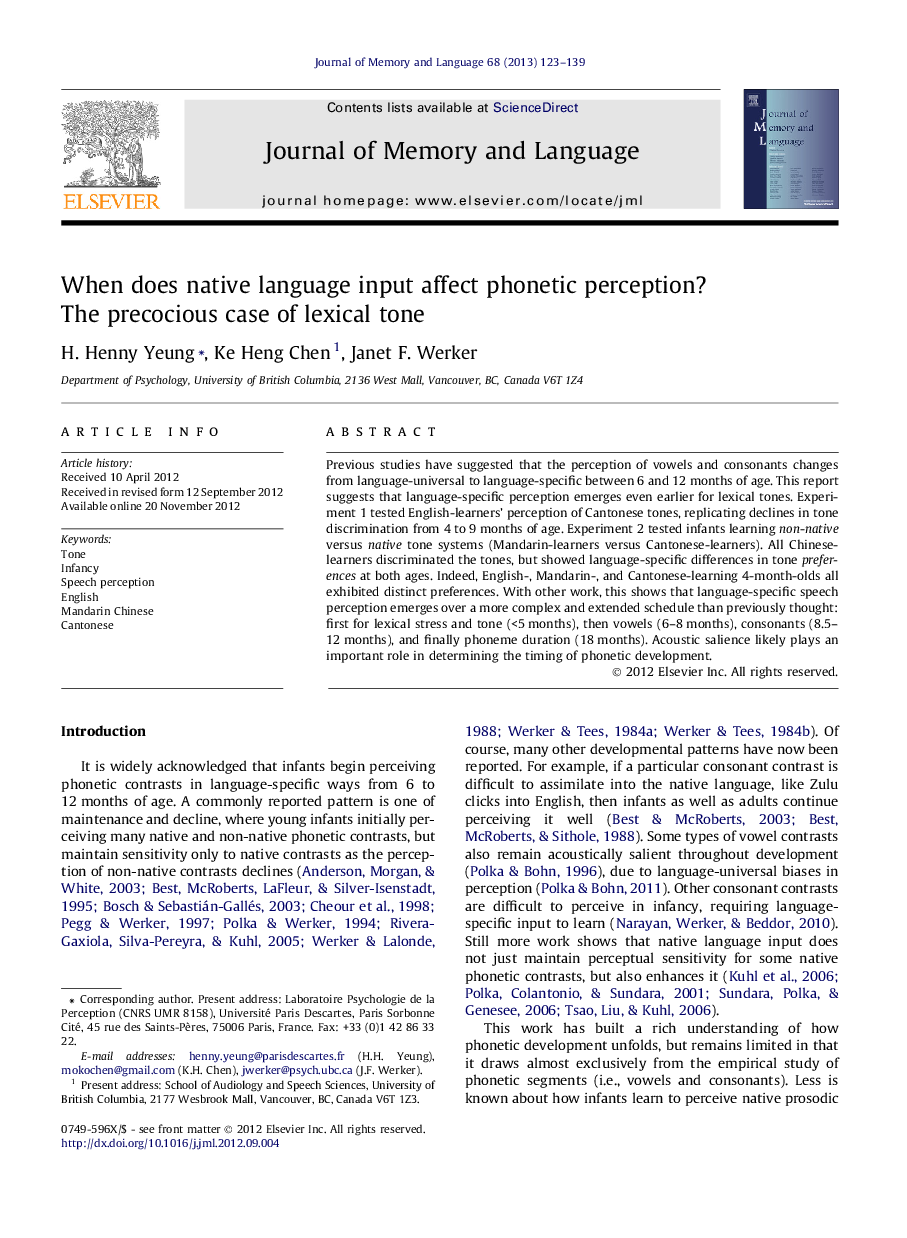| Article ID | Journal | Published Year | Pages | File Type |
|---|---|---|---|---|
| 931925 | Journal of Memory and Language | 2013 | 17 Pages |
Previous studies have suggested that the perception of vowels and consonants changes from language-universal to language-specific between 6 and 12 months of age. This report suggests that language-specific perception emerges even earlier for lexical tones. Experiment 1 tested English-learners’ perception of Cantonese tones, replicating declines in tone discrimination from 4 to 9 months of age. Experiment 2 tested infants learning non-native versus native tone systems (Mandarin-learners versus Cantonese-learners). All Chinese-learners discriminated the tones, but showed language-specific differences in tone preferences at both ages. Indeed, English-, Mandarin-, and Cantonese-learning 4-month-olds all exhibited distinct preferences. With other work, this shows that language-specific speech perception emerges over a more complex and extended schedule than previously thought: first for lexical stress and tone (<5 months), then vowels (6–8 months), consonants (8.5–12 months), and finally phoneme duration (18 months). Acoustic salience likely plays an important role in determining the timing of phonetic development.
► Lexical tone perception was tested in both 4- and 9-month-old infants. ► English-learners showed a decline in discrimination by 9 months. ► Chinese-learners discriminated tones at both ages, but only in some contexts. ► Mandarin- and Cantonese-learners also had language-specific patterns at both ages. ► Phonetic input affects tone perception earlier than vowel or consonant perception.
